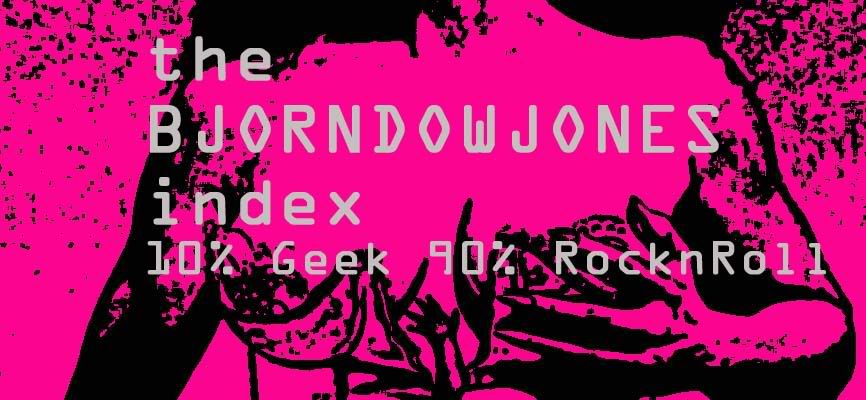Genrefication: part 2
So based on a bit of thinking and the minimum of research I've come up with the following genre categorisations:
1. RELATIONAL
This is a category of genres the name of which arises from their relationship to other music forms, typically their chronological relationship. For example classical music, traditional music and any genres with 'post', 'new' or 'neo' prefixes. Relational also includes genres such as 'alternative', 'progressive', 'avant garde' or 'hardcore' that are defined in opposition to something else. Some people probably think this is the most lazy way of titling genres, but I think it makes music sound more serious, like in history and archaeology where they refer to periods like the Post-Roman or Pre-War. And although it doesn't really explain what the music sounds like (often because it's quite heterogeneous) you can have a fair guess what it doesn't sound like.
2. MOVEMENT
Genres with names that relate to the way in which people moved to the music, such as Rock 'n' Roll, Swing and obviously 'Dance' music. My general feeling on this is that this was preferred nomenclature for early music genres, although obviously not the case for Dance, although I think that name might have been used in the early 20th Century too. Don't know why moving was so important for early genrefication, maybe because of the name of the dance pre-figured the music with which it was associated. Will have to research this a little more.
3. TECHNOLOGY (using the term anthropologically)
Genres with names derived from the kind of technology and instruments used to create the music. This can range from very generic genre titles such as 'techno', 'electronica', 'lo-fi' to genres with more specific reference to the instruments used such as 'Drum and Bass' or 'Rap'. This category has some overlap with the next one SOUND. This one seems to be quite recent, perhaps something to do with the tangible difference in the sound of music when it broke from using traditional instruments.
4. SOUND
A fairly self explnatory one really, this is for genres that are named after the way they sound, e.g. 'minimalist', 'glitch', 'speed metal' etc.Obviously 'Drum and Bass' and 'Rap' fit into this category to some degree too. Another quite recent one I think, linked to those reasons given above. I guess 'heavy metal' would come under this one too.
5. PROVENANCE
Musical genres the derive their title from the region, country or loale where in the past they became associated with. Examples include, 'Americana', Honky Tonk', 'Madchester', Kraut Rock', 'Merseybeat', 'Latino', Arena Rock' etc. Personally I think these are the least imaginative of all the genre categories. But they are the most easy to imagine. I suppose technically alot of these ones are linked to 'scenes' so you can automatically conjur up images in your head that are associated with them
6. SUBJECT
I can't think of that many genres that fit this category, but I guess 'Emo', 'Death Metal', 'Blues' all qualify.
There is also a seventh category which I'm struggling to come up with a name for. It's quite heterogeneous, but aren't they all a bit. This as yet un-named category covers those genres named after the people who make and listen to the music, that can be characterised by specific attitudes and sometimes ways of dressing. This includes 'Goth', 'Punk', 'Riot Grrrl' etc. The problem is where does 'pop' fit in? It's certainly a way of defining artist and audience, but the audience is often very varied and the artists aren't always technically popular.But then again that's the problem with music, it's always changing. You could argue that 'pop' is a sound that is devised to appeal to as many people as possible, that would put it in the SOUND category, funny that today's pop doesn't really appeal to the masses. Maybe the should re-name it Teen Music.



0 Comments:
Post a Comment
<< Home